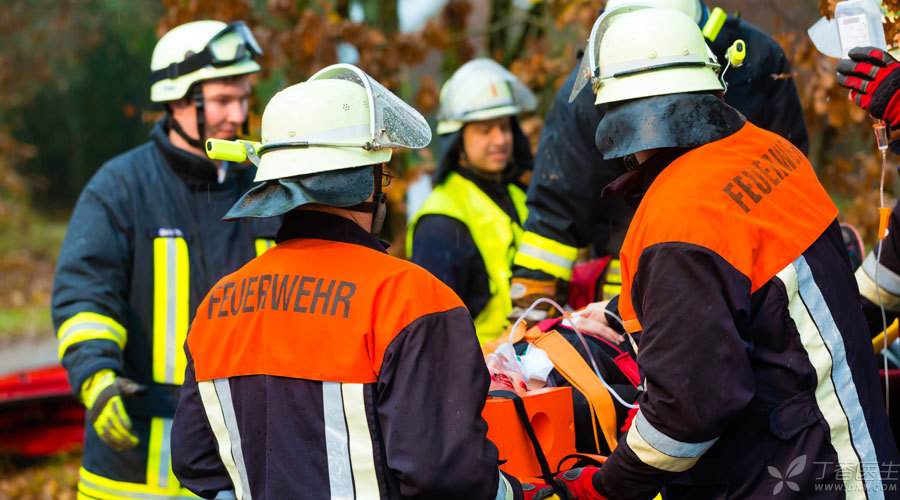
The lethality of tornadoes has never been only due to their ferocity when they come, but also due to the fact that even if they leave, they will still bury many potential safety hazards and threaten our lives.
According to statistics, about half of the related casualties occurred after the tornado ended, and most of them occurred during the later rescue of others and the cleaning of ruins. Among them, one-third of the people were injured by stepping on sharp objects such as nails, and other causes of injuries included being hit by accidental falling or slipping objects.
Therefore, even if the tornado leaves, in order to minimize the damage caused by the tornado, we should still remain vigilant and act safely.
What to do: to ensure personal safety to the greatest extent possible
1. Pay Attention to the Latest Disaster News
Continue to obtain the latest information about tornadoes and various temporary emergency notices through TV or the Internet, and follow the guidance of professional rescue organizations to ensure their personal safety.
2. Pay attention to sharp objects such as nails on the ground.
When passing through ruins or needing to do cleaning work, one should not only wear shoes or boots with thick soles, but also wear gloves and long-sleeved clothes. Pay special attention to nails and sharp broken glass on the ground.
3. Turn off the power supply, gas, natural gas, etc. in time
- If you feel that there is any suspicious potential safety hazard in your home, turn off the power supply, natural gas, etc. in time to avoid accidents such as fire, electric shock or explosion. If you see bare wires, the wires pop out of sparks or smell as if something is burnt, immediately turn off the main power switch in your home. If you smell or suspect a gas leak, turn off the gas immediately and leave the room in time. Remember not to turn on the light, smoke, strike matches or take any other actions that may cause [sparks]. And take the time to contact the gas company or the fire department, and go home after the relevant department confirms safety.
What should not be done: potential safety hazard, be sure to detour
Step 1 Avoid candle lighting
If there is a power outage at home, it is better not to use candles for lighting, but to use battery-powered lights as much as possible. If you only have candles at hand, be sure to keep the candles away from curtains, paper, wood products and other flammable materials, and extinguish the candles in time when you leave, so as not to cause accidents such as fire or explosion.
Step 2 Stay away from bare wires
If you see the fallen wire and anything in contact with the fallen wire, do not approach it and tell the professionals to deal with it in time.
3. Do not use equipment fueled by gas, natural gas, charcoal, etc.
No matter where you are, don’t use generators, high-pressure washers, barbecues and other equipment that uses gas, natural gas or charcoal as fuel.
Because when using these equipment, nitric oxide (a colorless and odorless gas) may be produced. Once this gas accumulates, it will produce toxicity and endanger the safety of human and animal lives.
When there are suspected carbon monoxide poisoning manifestations, such as dizziness and vomiting, you need to go to the hospital immediately.
4. Do not enter dangerous areas spontaneously for rescue.
Don’t go into dangerous areas spontaneously for rescue, then you can not only not guarantee your own life safety, but also affect the possibility of others being rescued. Only when police stations, fire brigades, first aid agencies and rescue organizations send out the news of recruiting volunteers can you follow professionals to the disaster area.
The easiest thing to ignore: children may not be able to bear it, so communicate more patiently.
The tornado has gone, but some young children may be in a state of tension and panic all the time. Natural disasters may be completely beyond their understanding. Therefore, parents should pay attention to their children’s state and try to communicate through the following ways:
- Like telling stories, tell children about their past experiences in the face of natural disasters, and tell them why there are tornadoes. Children may not be able to understand them, but at least he is beginning to understand that such things will happen naturally and are not extremely horrible in what. Encourage children to speak out their fears and don’t let them face these emotions alone. Pay more attention to children, chat with them, play games and tell him that the current situation is only temporary and everything will be fine.
At the same time, we should also remind everyone that the psychological trauma caused by tornadoes may affect people of all ages, and some people may not have relevant symptoms until weeks or months later. If family members are found to have abnormal behaviors of what, they must seek professional help and actively treat them in time.
